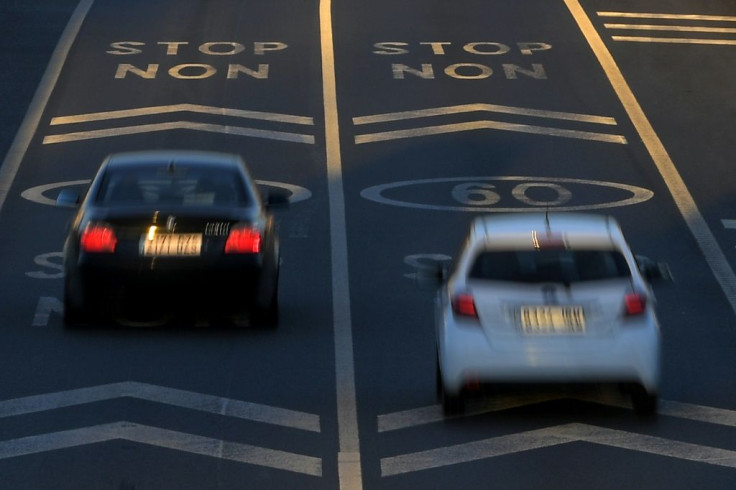Tolls, Stickers Or Free? Spain Mulls Future Of Motorways
Who's going to pay for Spain's motorways? Debate is raging over the funding of its 12,000 kilometres of motorways after the government made some roads toll-free after the concessions expired.
"Don't stop!" Since September 1, that has been the message plastered across many toll booths in the northeastern Catalonia region, largely along a section of the AP-7 motorway between the French border and Barcelona that is very popular with European tourists.
With the ending of concessions held by subsidiaries of Spanish toll road operator Abertis, control over nearly 500 kilometres (300 miles) of motorways has reverted back to the state and the government of Socialist Prime Minister Pedro Sanchez.
Halting the tolls there will hand road users "an annual savings of more than 750 million euros ($890 million)", said Transport Minister Raquel Sanchez.
In a country where almost 85 percent of motorways are toll-free, payments on three stretches ended in 2018 and another two in 2020, meaning that in just three years, 1,029 kilometres of highway have passed from private to public hands -- saving drivers 1.4 billion euros in tolls.
Not renewing the toll road concessions when they came to and end was a pledge made by Pedro Sanchez when he became premier in 2018, with the aim of overhauling Spain's motorway management model, which varies hugely across the country and is a major source of frustration for drivers.

But the areas where tolls have been lifted won't stay like that for long.
"We're looking to set up a tariff system according to usage," the transport minister said, pledging to bring in a new model that would be "publicly run, fair and homogenous throughout Spain".
Over the years, Spain has tried a range of different approaches with some roads under public ownership, others privately-held, some run by the state and others by the region, explained Maria Angeles Baez, an expert in the Spanish road system from Granada University.
"Faced with the need to improve the road network and the scarcity of financial resources, the state opted for the concession system, which was rolled out in two periods: from 1967-1975 and 1996-2006," she told AFP.

Although the toll-based motorway system "encouraged economic growth" in certain areas it was not well received by the public, she said.
And government plans to set up a new system of charges are creating fresh tensions.
Motorway maintenance is very expensive, costing around 80,000 euros per kilometre every year, a sum which places a huge burden on a country like heavily-indebted Spain.
In its economic plan sent to the European Commission to unlock its share of the EU's multi-billion-euro Covid recovery funds, Madrid pledged to review its motorways funding model and set up a payment system that would guarantee "the necessary income" to preserve the state's road network.
"It doesn't make much sense for this maintenance to be footed largely out of the state budget which is ultimately paid for by the public, including those who don't use the motorways," the transport minister said.
So how will the funding work? Many options are on the table, including the idea of an annual motorway charge sticker, along the lines of the Swiss system, which lets drivers onto all motorways in exchange for a fixed fee.
Another possibility is payment per kilometre via a system of portals that recognise the passing vehicle and automatically charge the driver's bank account.
The Spanish press has been talking about a relatively modest charge of 0.01 to 0.015 centimes (up to $0.02) per kilometre for cars and 0.05 centimes for lorries.
Whatever model wins out, the solution is likely to mean a charge will be imposed on many roads that until now have been free -- and the prospect is angering motorists.
Faced with such opposition, the government has committed to a consultation process that should last several months.
© Copyright AFP 2024. All rights reserved.





















